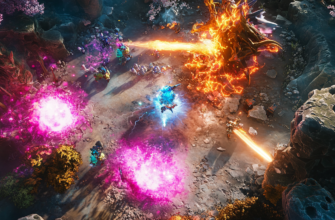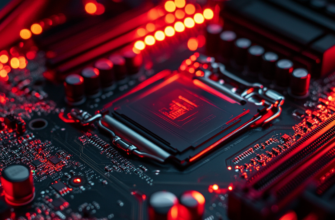- Why many gamers choose consoles over PC: An in-depth look at console gaming
- 1. Simplicity: Set it up and game
- Console setup vs PC setup
- 2. Price: Cost-effective gaming
- Which gives more bang for your buck?
- 3. Exclusive titles drive much of the preference
- What about PC exclusives?
- 4. Controllers and couch gaming
- PCs in the living room?
- 5. Online services and family share
- What’s the alternative on PC?
- 6. Longevity and durability
- Invest once, play for years
- Conclusion: Considering making the switch?
Why many gamers choose consoles over PC: An in-depth look at console gaming
Alright, so you’re here because you’re wondering why so many people are still gravitating towards consoles even though we’re living in a PC-dominant world. It’s an interesting conversation to have, and I’ve got a lot of insights to share about it. Whether you’ve been a die-hard PC gamer who’s considering dabbling in console gaming, or a console player wondering what the fuss is all about, sit tight. We’re going to explore why consoles still have that unshakable appeal that keeps millions of gamers coming back.
Now don’t get me wrong—I’m all about squeezing every drop of power out of my gaming rig. But consoles? They’ve got their charm too, and here’s why more gamers than you think tend to prefer them.
1. Simplicity: Set it up and game
Ever notice how easy it is to start gaming on a console? You take it out of the box, plug it into your TV, boot it up, and boom—you’re in the game, no hassles. No drivers to update, no worrying about whether your graphics card can handle the latest AAA title. With a PC, it’s a different beast altogether. You’ve got to keep your rig in check, configure settings, and—oftentimes—troubleshoot when something goes haywire.
For many gamers, especially casual players or those with busy lives, this simplicity is beyond appealing. You don’t want to spend an hour tweaking settings; you want to sit down, fire up the game, and get lost in the adventure. Who can blame them? There’s an undeniable sense of satisfaction that comes from instant gaming with no baggage.
Console setup vs PC setup
Let’s break it down:
- Consoles: Plug it in, set up Wi-Fi or Ethernet, sign into your account, and you’re ready to download and play.
- PC: Build your own or buy a pre-built machine (and that’s before you even get to software). Then, tweak drivers, optimize settings, install game clients like Steam or Epic Games Store, and pray everything works on the first go.
So yeah, for a lot of people, less hassle equals more fun. And dude, who can argue with that?
2. Price: Cost-effective gaming
If we’re talking about gaming on a budget, consoles win the cost war more often than not. A solid gaming PC is going to run you at least a couple of grand if you want to future-proof it for the next few years. And that’s before you consider a good monitor, mechanical keyboard, and other accessories.
A PlayStation 5 or Xbox Series X? They’re priced reasonably well considering their hardware, and you can throw them on any half-decent TV and still have an epic experience. Plus, console game prices aren’t too far off from PC games, especially when sales like Black Friday roll around.
Which gives more bang for your buck?
The thing with gaming PCs is that performance varies greatly depending on how deep your pockets are. Consoles? They’re engineered for consistency, meaning everyone’s getting the same FPS counts, resolution, and overall experience.
- Consoles: You buy once, you invest in a few games, and you’re spoilt for years (until the next-gen comes along).
- PC: If you’re chasing top-tier performance and future-proofing, you’ll constantly upgrade parts—and that adds up.
Many console gamers appreciate this exact predictable spending, while with PC gaming, your wallet is constantly on guard.
3. Exclusive titles drive much of the preference
Ah, exclusivity. The buzzword that just won’t go away when we talk about consoles.
There’s nothing quite like a PlayStation exclusive to make your PC master race friends a little jealous. Games like “The Last of Us”, “Bloodborne”, and the “God of War” series draw gamers in because, like it or not, you just can’t get them anywhere else. For folks who love story-driven, cinematic experiences, these games are the stuff of dreams. Heck, some people buy entire consoles just to play the exclusives!
What about PC exclusives?
Sure, PCs have their exclusives too, with a ton of indie titles and modding communities that bring dead games to life. But the console exclusives? They feel like AAA productions made specifically to push the limits of those machines. It’s not a small reason why many gamers still stick to their consoles.
4. Controllers and couch gaming
“Couch gaming” is a term I bet you’re familiar with if you’ve ever owned a console. Relaxing in a comfortable seat, controller in hand, playing on a massive TV screen—it’s a vibe. For some, the mere thought of sitting at a desk with a mouse and keyboard just can’t compare.
Consoles offer simplicity when it comes to gaming in front of your TV. Sure, PC gaming has come a long way with controller support and HDMI exports to monitors and TVs. But the natural habitat for a gaming console is the living room, and it’s hard to argue against that experience.
PCs in the living room?
Now, I know what you’re thinking: you can hook up your PC to your TV and use a controller there too, right? Yeah, that’s true, but it often requires a bit more legwork. There’s something about the native console experience that makes it way easier for folks who don’t want to tweak their setups every week.
5. Online services and family share
Thanks to PlayStation Plus, Xbox Game Pass, and Nintendo Online, gaming consoles make it incredibly easy to not only access a ton of games but also share them across family members and devices. PlayStation’s family-sharing features allow for multiple profiles to share the same PS Plus subscription, accessing online multiplayer benefits and free games as part of the package.
Then there’s Xbox Game Pass, which—let’s be real—is one of the most impressive value propositions in gaming right now. A small monthly fee unlocks a wide array of titles across multiple platforms, including PC.
What’s the alternative on PC?
PC gamers still have services like Steam to fall back on, but Steam Family Sharing can’t quite match most of the console services in terms of sheer ease or value. On top of that, console subscription services often throw in exclusive discounts, early access, or free games, which sweetens the deal for a lot of players.
6. Longevity and durability
Ever tried playing on a five-year-old gaming PC running brand-new titles? Without some serious upgrades (or sacrifices in settings), you’re going to struggle. Consoles, on the other hand, tend to hold their own for years. I mean, I’ve still got my PS4 and it’s been chugging along like a champ with the latest releases.
Consoles are designed to last the entire generation—from the minute you buy it until the next one drops, you’re set. PCs need constant attention and fine-tuning to keep up with the latest developments and graphical demands.
Invest once, play for years
- Consoles: Buy a PS5 or Xbox Series X today, and you’ll still be playing the latest games a few years into its lifecycle without worrying about upgrading parts.
- PCs: The higher the specs, the longer you’ll last without upgrades, but performance will degrade as games become more demanding.
Conclusion: Considering making the switch?
At the end of the day, the preference for console gaming stems from a mix of affordability, simplicity, exclusivity, and ease of use. PCs undeniably have their strengths—be it raw performance, modding, or customization. But consoles offer a plug-and-play experience that many players just can’t ignore.
If what you want is a no-fuss gaming experience with fewer headaches, supporting exclusive titles, and lower wallet damage over the long haul, a console might just be the right companion for your next gaming adventure.
What do you think? Do consoles deserve the love they get, or do they pale in comparison to the flexibility of a powerful PC gaming setup? Drop your comments below, and let’s continue the discussion!

















